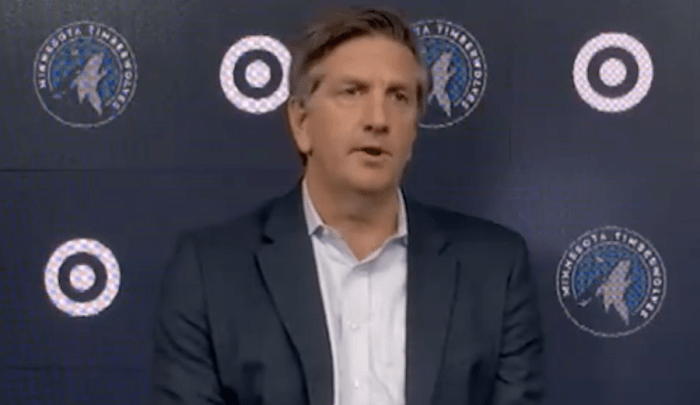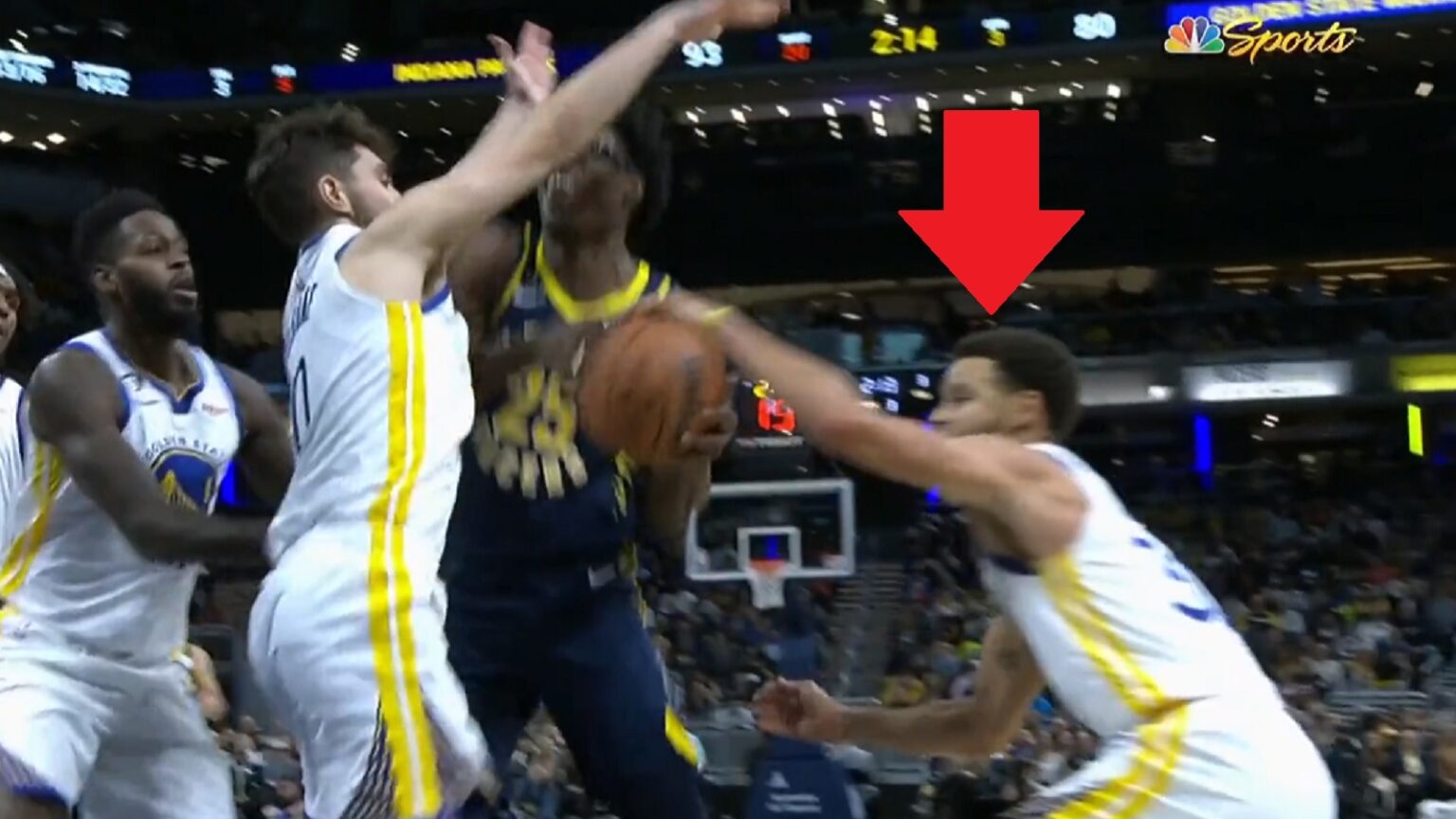The Impact Of Chris Finch's Leadership On The Minnesota Timberwolves' Season

Table of Contents
Finch's Offensive System and its Impact on Player Development
Chris Finch's offensive philosophy centers on player empowerment and adaptability. He emphasizes spacing, ball movement, and utilizing the unique skills of each player to maximize their potential. This approach has been instrumental in the development of key Timberwolves players. Anthony Edwards, for example, has seen significant improvement in his three-point shooting and overall efficiency under Finch's guidance. Karl-Anthony Towns’ offensive versatility has been unlocked, allowing him to operate effectively both inside and outside the paint. D'Angelo Russell’s playmaking abilities have also flourished within Finch's system.
- Improved three-point shooting percentages: The Timberwolves have seen a noticeable increase in three-point accuracy under Finch, a testament to his emphasis on shooting efficiency.
- Increased ball movement and assist numbers: Finch's system encourages passing and teamwork, leading to a rise in assists and a more fluid offensive flow.
- Enhanced individual player efficiency ratings: Key players have seen significant boosts in their efficiency ratings, reflecting their improved performance within Finch's offensive framework.
- Specific examples of players exceeding expectations: Anthony Edwards’ scoring prowess, Towns' improved playmaking, and Russell's consistent leadership have all demonstrated the effectiveness of Finch's player development strategies.
Defensive Improvements Under Finch's Leadership
While the Timberwolves' offense has been a highlight, Finch's impact on the defensive side is equally significant. Compared to previous seasons, the team has shown marked improvement in defensive intensity and execution. Finch has implemented several strategic adjustments that have contributed to this positive change.
- Changes in defensive schemes and their results: The implementation of a more aggressive switching scheme has significantly disrupted opponents' offensive flows.
- Improved defensive rebounding statistics: The Timberwolves have displayed a greater commitment to securing defensive rebounds, limiting second-chance opportunities for their adversaries.
- Reduction in opponent points per game: The team has consistently held opponents to lower point totals, showcasing the effectiveness of Finch’s defensive strategies.
- Examples of successful defensive plays or strategies: The increased use of zone defenses in specific situations has proven highly effective in disrupting high-scoring opponents.
Finch's Player Management and Team Culture
Finch's ability to manage his players and cultivate a positive team culture has been crucial to the Timberwolves' success. His communication style is known for being direct yet supportive, fostering an environment of trust and accountability. He expertly navigates player conflicts and builds team unity, contributing to a strong team chemistry.
- Examples of Finch's motivational techniques: Finch's emphasis on individual and team growth has been a constant source of motivation for his players.
- Instances of effective player communication and conflict resolution: His ability to address disagreements constructively has prevented any major disruptions within the team.
- Positive player quotes about Finch’s coaching style: Players consistently praise Finch's approachability, his detailed game plans, and his commitment to player development.
- Observations regarding team cohesion and camaraderie: The team’s visible camaraderie on and off the court speaks volumes about the positive team culture fostered by Finch's leadership.
Challenges and Areas for Improvement Under Finch's Leadership
Despite the significant progress under Finch, the Timberwolves have experienced challenges. Consistency remains an area needing improvement. Certain aspects of the team's performance, particularly in crunch-time situations, require further refinement.
- Specific examples of shortcomings in game performance: Inconsistent defensive efforts at times have led to lapses in games.
- Areas where player development could be further optimized: The development of younger players requires ongoing attention and refinement of coaching strategies.
- Potential adjustments to offensive or defensive strategies: Adapting strategies based on opponent strengths and weaknesses is vital for consistent success.
- Potential weaknesses in player rotation or game management decisions: Optimizing player rotation and crucial game-time decisions are ongoing challenges that require constant assessment and adjustment.
Conclusion: Assessing the Lasting Impact of Chris Finch on the Minnesota Timberwolves
Chris Finch's leadership has undeniably had a substantial impact on the Minnesota Timberwolves. His offensive system has unlocked the potential of key players, resulting in improved scoring and efficiency. Furthermore, his defensive strategies have led to a significant improvement in the team's overall defensive performance. While challenges remain, particularly concerning consistency, Finch's positive influence on team culture and player development is evident. His coaching style fosters a supportive and accountable environment, crucial for the long-term success of the Timberwolves.
We encourage you to share your opinions on Chris Finch’s coaching and its impact on the Minnesota Timberwolves' season. Let's continue the discussion on the impact of Chris Finch’s leadership and its lasting effects on the franchise. What are your thoughts on his strategies and future outlook for the team? Join the conversation!

Featured Posts
-
 Steelers Combine Performance Securing Pickens Future Successor
May 07, 2025
Steelers Combine Performance Securing Pickens Future Successor
May 07, 2025 -
 Stephen Curry Injury Update Coach Kerr Offers Positive Outlook
May 07, 2025
Stephen Curry Injury Update Coach Kerr Offers Positive Outlook
May 07, 2025 -
 Steelers Star Wide Receiver Trade Rumors And Potential Destinations
May 07, 2025
Steelers Star Wide Receiver Trade Rumors And Potential Destinations
May 07, 2025 -
 The Cavaliers According To Charles Barkley A Frank Assessment
May 07, 2025
The Cavaliers According To Charles Barkley A Frank Assessment
May 07, 2025 -
 Analysis Xrp Price Surge After Us Presidents Trump Article
May 07, 2025
Analysis Xrp Price Surge After Us Presidents Trump Article
May 07, 2025
